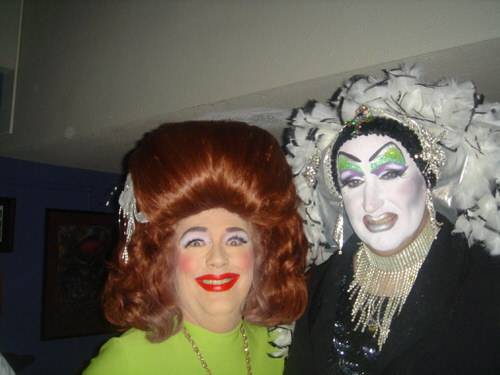
After weeks of controversy surrounding Facebook’s “real-names” policy kicked off by a group of drag queens and LGBT supporters, Facebook’s chief product officer, Chris Cox, apologized on behalf of the company for the “hardship” the policy has caused.
Anonymous Reports
Facebook has long prided itself on requiring users to use their “real identity” on the social network. And its help pages outline a clear definition of what this means:
The name you use should be your real name as it would be listed on your credit card, driver’s license or student ID
Cox is a Facebook veteran who joined the company in 2005 and is considered to be in Facebook CEO Mark Zuckerberg’s inner circle. As such, he’s a key player in shaping policies around how users present themselves on the social network.
In his post, he wrote that one individual reported hundreds of drag queens for violating this policy. (Though it’s unconfirmed, that user may have boasted about his or her behavior on the anonymous social app Secret. Ironically, we don’t know who made that claim—because Secret doesn’t attach any kind of identity to its postings.)
When it receives a report of an account for not using a “real name,” Facebook logs the account holder out of the site and sends an email informing them they must use a “real name” in order to continue using the account. A number of drag queens received such an email weeks ago, and it ignited a push to get Facebook to axe the real-names policy.
Cox says that the reaction to these incidents of enforcing its stated policies took Facebook by surprise.
“Our policy has never been to require everyone on Facebook to use their legal name,” Cox wrote in a Facebook post. “The spirit of our policy is that everyone on Facebook uses the authentic name they use in real life. For Sister Roma, that’s Sister Roma. For Lil Miss Hot Mess, that’s Lil Miss Hot Mess.”
See also: Drag Queens Read Facebook’s Real-Names Policy For Filth
Cox wrote about the spirit of the policy—apparently his own interpretation. The way it’s written in Facebook’s help pages and the way that it’s been enforced points to a policy that does, in fact, require people to use their legal names.
Good luck getting an official ID which says “Sister Roma” or “Lady Bear.” In most places, drag queens and transgender individuals can’t even get driver’s licenses in makeup—though one teen is suing South Carolina for that right.
It’s not just drag queens who were affected by Facebook insisting people use their “real names”—the #MyNameIs movement inspired people around the world to share their own belief that a name and an identity is not necessarily tied to a document that proves you are a person that exists, but rather the person you choose to be.
Drag queens and representatives of the LGBT community met with Facebook at least once before, just days after Facebook initially started warning drag queens to use their “real names.” On Wednesday, Sister Roma posted a selfie of her heading to Facebook headquarters to talk about the real-names policy just hours before Cox posted the apology.
Cox said the “real-names” policy is the right policy for Facebook, because it’s “the primary mechanism we have to protect millions of people every day, all around the world, from real harm.” He did not address the very real harm some people in the LGBT community, as well as victims of abuse and stalking, may face when using their “real names.”
He also said that there is room for improvement in how the company handles reporting and enforcement, and said that the company is building better tools to manage and verify accounts using names that don’t qualify as “real” under Facebook’s stated standards.
It’s clear that outside pressure from the LGBT community prompted Facebook to apologize, and although it’s unclear whether Facebook will be changing the wording of its policy, hopefully Cox’s new spiritual definition will prevail.
Here’s Cox’s full post.
http://www.facebook.com/chris.cox/posts/10101301777354543
Lead photo by Kevin Goebel on Flickr
















